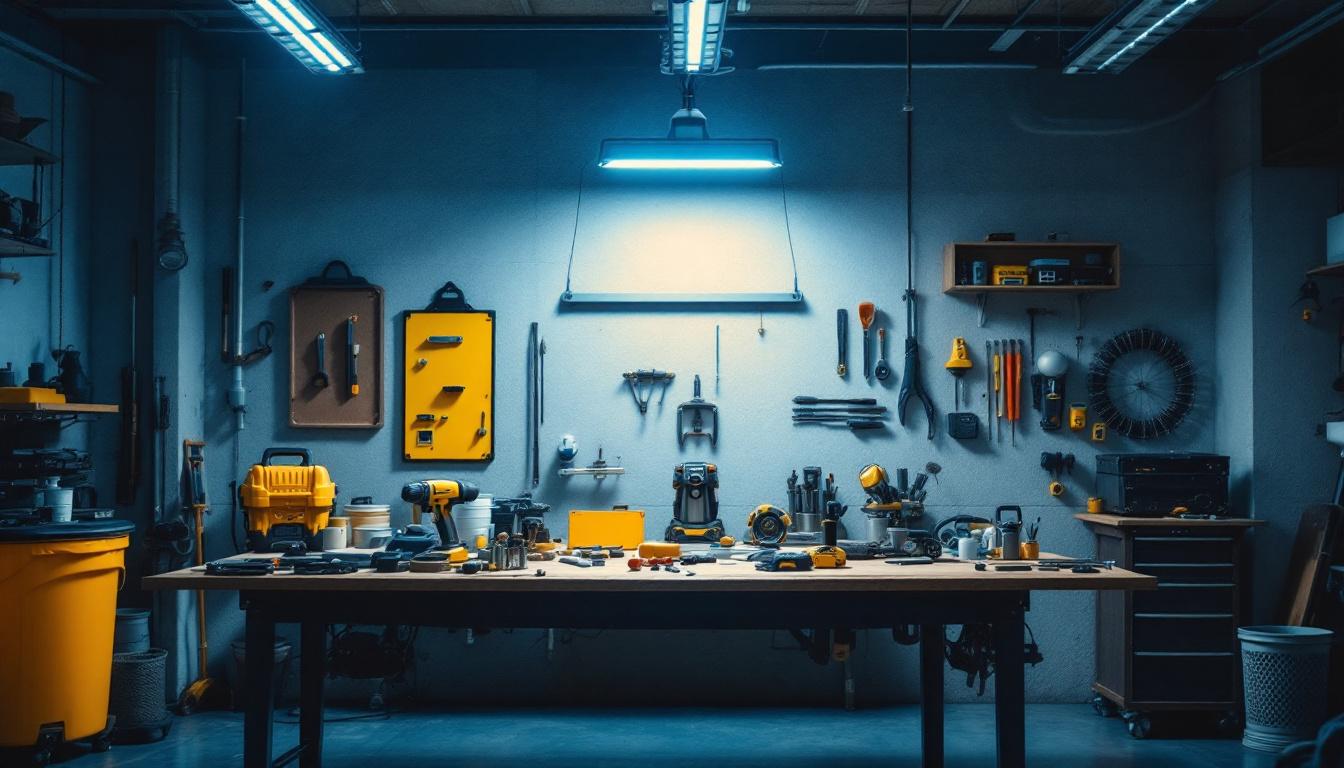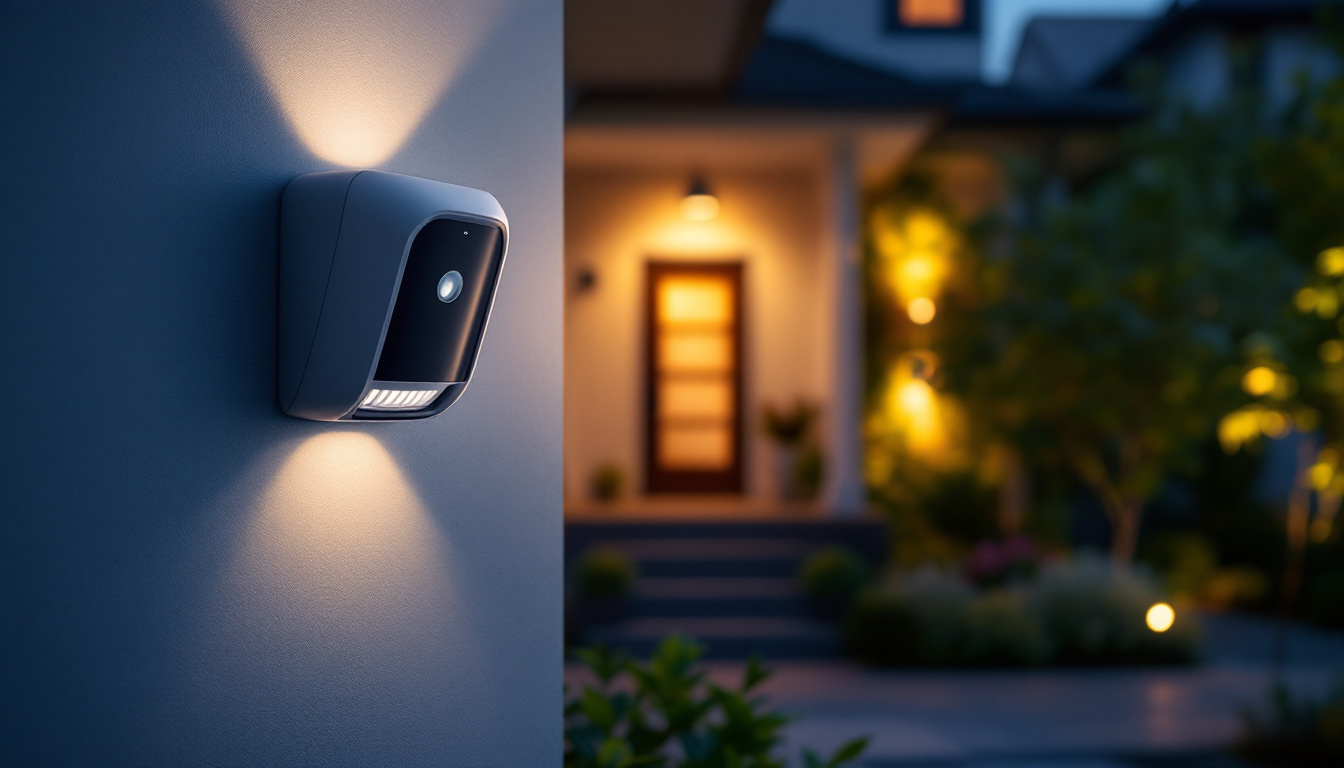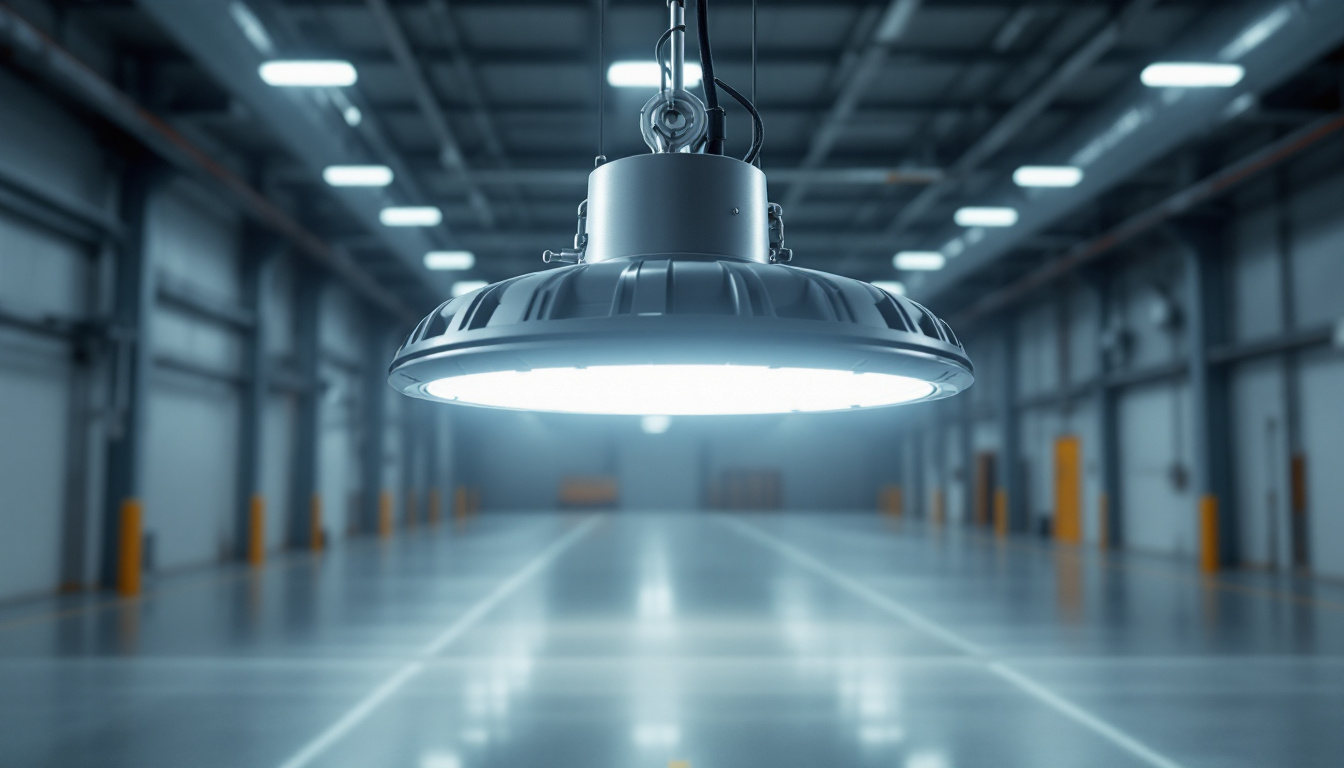
Lighting projects can be both exciting and challenging, especially when it comes to hardwired shop lights. For lighting contractors, understanding the nuances of installation, design, and functionality is crucial to avoid costly mistakes. This article delves into essential considerations for hardwired shop lights, providing insights that can help streamline projects and enhance the overall quality of lighting installations.
Hardwired shop lights are fixtures that are directly connected to the electrical system of a building. Unlike plug-in lights, hardwired options offer a more permanent solution, which can be beneficial in commercial settings and workshops. However, this permanence also means that careful planning and execution are vital.
One of the primary advantages of hardwired shop lights is their reliability. These fixtures are less likely to be accidentally unplugged or moved, ensuring consistent lighting in work areas. Additionally, hardwired lights often provide better energy efficiency compared to their plug-in counterparts, as they can be integrated with advanced lighting controls and sensors. This integration allows for features such as dimming, motion detection, and scheduling, which can further optimize energy usage and enhance the overall functionality of the workspace.
Moreover, hardwired shop lights can enhance the aesthetics of a space. With a variety of designs available, contractors can select fixtures that not only meet functional requirements but also complement the overall design of the shop or workspace. For instance, sleek, modern LED fixtures can create a contemporary look, while vintage-style fixtures can add character to a more rustic environment. The choice of finishes and colors can also play a significant role in harmonizing the lighting with other design elements in the room.
There are various types of hardwired shop lights available, each designed for specific applications. LED shop lights are increasingly popular due to their energy efficiency and long lifespan. They emit bright, clear light while consuming significantly less power than traditional lighting options, making them an eco-friendly choice. Fluorescent lights, while less common now, are still used in some settings for their brightness and cost-effectiveness. Metal halide and high-pressure sodium lights are also options, particularly in larger industrial spaces where high lumen output is necessary. These types of lights are favored for their ability to illuminate vast areas effectively, making them ideal for warehouses and manufacturing facilities.
Understanding the specific needs of the workspace will guide contractors in selecting the appropriate type of hardwired shop light. Factors such as the size of the area, the tasks being performed, and the desired ambiance all play a role in this decision. For example, a woodworking shop may require brighter, more focused lighting to ensure precision during detailed tasks, while a garage might benefit from adjustable lighting that can be directed where needed. Additionally, considerations such as the color temperature of the lights can impact the mood and functionality of the space; warmer tones can create a cozy atmosphere, while cooler tones can enhance alertness and focus. Ultimately, selecting the right hardwired shop lights involves a careful balance of practicality, efficiency, and aesthetic appeal, ensuring that the workspace is both functional and inviting.
Effective lighting design begins with a well-thought-out layout. A poorly planned lighting arrangement can lead to dark spots, glare, or insufficient illumination, which can hinder productivity and safety. Therefore, careful consideration of the layout is essential.
Before any installation, it is crucial to assess the workspace thoroughly. This includes measuring dimensions, identifying existing electrical infrastructure, and understanding the functions of different areas within the shop. For instance, areas designated for detailed work may require brighter, more focused lighting, while general areas may benefit from softer illumination.
Additionally, consider the height of the ceilings and the placement of shelves or machinery that could obstruct light. A comprehensive assessment will inform the optimal positioning of fixtures to maximize light distribution. It’s also important to take into account the natural light sources available in the space, as windows and skylights can significantly influence the overall lighting design. By observing how natural light changes throughout the day, you can strategically position artificial lighting to complement and enhance these natural sources, creating a more dynamic and inviting environment.
Once the assessment is complete, creating a detailed lighting plan is the next step. This plan should include the type and placement of each fixture, as well as the wiring and switching arrangements. Utilizing lighting design software can be beneficial, allowing for visual simulations of how light will interact with the space.
Incorporating different lighting zones can also enhance functionality. For example, task lighting can be installed over workbenches, while ambient lighting can provide overall illumination. This layered approach not only improves visibility but also enhances the aesthetic appeal of the space. Furthermore, consider the use of dimmers and smart lighting systems that allow for adjustable brightness levels. This flexibility can be particularly useful in multi-functional spaces, where the lighting needs may vary throughout the day or for different activities. By integrating technology into your lighting plan, you can create a more adaptable environment that meets the diverse needs of its users.
Even seasoned contractors can fall prey to common mistakes when it comes to hardwired shop lights. Awareness of these pitfalls can save time and resources, ensuring a smoother project execution.
One of the most frequent errors is underestimating the required light levels for specific tasks. Each area within a shop may have different lighting needs based on the activities performed. For instance, areas designated for intricate work may require upwards of 100 foot-candles, while general areas may only need 30 to 50 foot-candles.
To avoid this mistake, reference established lighting guidelines and standards. Consulting with industry resources can provide clarity on the appropriate light levels for various tasks and environments. Additionally, utilizing tools such as light meters can help assess current lighting conditions and determine if adjustments are necessary. This proactive approach not only enhances productivity but also contributes to a safer working environment by minimizing the risk of accidents caused by inadequate visibility.
Another common oversight is neglecting energy efficiency. While initial costs may be lower for traditional lighting options, the long-term savings associated with energy-efficient fixtures can be significant. LED lights, for example, consume less power and have a longer lifespan, reducing both energy bills and maintenance costs.
When selecting fixtures, consider the energy ratings and potential rebates or incentives for using energy-efficient products. This not only benefits the client but also enhances the contractor’s reputation as a knowledgeable and responsible professional. Moreover, incorporating smart lighting technology can further optimize energy usage. Features such as motion sensors and dimmers allow for tailored lighting solutions that adapt to the specific needs of the workspace, ultimately leading to even greater energy savings and improved operational efficiency.
Proper installation is critical to the performance and longevity of hardwired shop lights. Adhering to best practices can prevent issues down the line and ensure that the lighting system operates as intended.
Compliance with local electrical codes is non-negotiable. These codes are designed to ensure safety and functionality, and failing to adhere to them can result in costly fines or dangerous situations. Before beginning any installation, familiarize yourself with the relevant codes and regulations.
Additionally, consider consulting with a licensed electrician if electrical work is outside your area of expertise. This collaboration can provide peace of mind and ensure that the installation meets all safety standards.
Once the installation is complete, testing the lighting levels is essential. This involves turning on the fixtures and assessing the illumination throughout the space. Adjustments may be necessary to achieve the desired light levels and eliminate any glare or dark spots.
Utilizing light meters can provide accurate readings of light levels, allowing for precise adjustments. Additionally, soliciting feedback from users can help identify areas that may require further enhancement.
Even after a successful installation, ongoing maintenance is crucial to ensure the longevity and efficiency of hardwired shop lights. Regular maintenance can prevent issues that may arise from wear and tear or environmental factors.
Conducting regular inspections of the lighting system can help identify potential problems before they escalate. This includes checking for burnt-out bulbs, flickering lights, or any signs of electrical issues. Keeping a maintenance schedule can streamline this process and ensure that inspections are not overlooked.
During inspections, also assess the cleanliness of the fixtures. Dust and grime can accumulate over time, diminishing the effectiveness of the lights. Regular cleaning can enhance light output and prolong the lifespan of the fixtures.
As technology evolves, so do lighting solutions. Staying informed about the latest advancements in lighting technology can provide opportunities for upgrades that enhance performance and efficiency. For instance, integrating smart lighting controls can offer flexibility and energy savings.
Encouraging clients to consider upgrades not only improves their lighting systems but also positions contractors as forward-thinking professionals who prioritize innovation and efficiency.
Hardwired shop lights play a vital role in ensuring adequate illumination in various work environments. By understanding the intricacies of lighting design, planning effectively, avoiding common mistakes, adhering to installation best practices, and prioritizing maintenance, lighting contractors can deliver exceptional results that meet client needs and enhance productivity.
Ultimately, a well-executed lighting project not only improves functionality but also contributes to the overall safety and aesthetic appeal of the workspace. By applying the insights shared in this article, contractors can navigate the complexities of hardwired shop light installations with confidence, ensuring successful outcomes and satisfied clients.
Ready to elevate your lighting projects with the best in spec-grade lighting? Look no further than LumenWholesale. Our commitment to quality and affordability ensures that you can access a wide range of superior lighting products at wholesale prices that simply can’t be beaten. Say goodbye to middleman markups and hello to unbeatable value. With free shipping on bulk orders, LumenWholesale is your go-to source for reliable, high-performance lighting solutions that meet the highest industry standards. Enhance your productivity and project outcomes while enjoying significant savings. Wholesale Lighting at the Best Value is just a click away. Experience the LumenWholesale difference today!

Discover everything lighting contractors need to know about can LED lights in this comprehensive guide.

Explore the essential insights lighting contractors need with “Brightest Bulb: Demystified.” Uncover the latest innovations, industry standards, and expert tips to illuminate your projects with precision and efficiency..

Discover the essential insights lighting contractors need to know about exterior motion detector alarms.

Discover the benefits of high bay LED lights in this comprehensive guide, exploring their role in energy efficiency, cost savings, and improved illumination for large spaces.